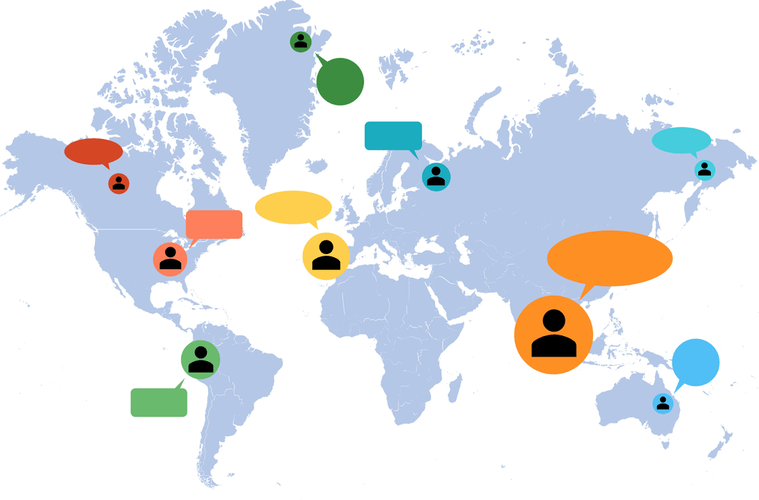16 sep Difference between C and C++ Head to Head Comparison
C is a high-level classical type programming language that allows you to develop firmware and portable applications. The C language was developed with an objective of writing system software. C and C++ are general-purpose programming languages used to write foundational software such as operating systems, browser engines, gaming engines, etc. The major difference between C and C++ is the programming approach, with C being procedural and C++ adopting OOP. Other differences include more sophisticated memory management with C++, the addition of exception handling in C++, and stricter type safety.
- Being a procedural programming language, C lays more emphasis on procedure and steps, than the data.
- Object-oriented programming has been created to get better at the drawbacks of usual programming techniques.
- C++ has more features and abstractions than C, which can result in a slight performance overhead.
- In operator overloading, at least a single operand must be a user-defined class object.
- You cannot use the C programming language for describing the real world very well.
C supports calloc() and malloc() functions for the memory allocation, and free() function for the memory de-allocation. C++ supports a new operator for the memory allocation and delete operator for the memory de-allocation. In C language, functions and data are the free entities, and in C++ language, all the functions and data are encapsulated in the form of objects.
Difference between Difference Between C and C++
And before jumping on the comparison of C vs C++, we should read about the features of both of them as well. C++ is commonly used in the development of game engines due to its ability to manage hardware resources and support CPU-intensive operations. In function overloading, two or more functions should have a similar name but different parameters.
The C program is the human-readable form, whereas the executable generated by the compilers is the machine-readable form. This implies that a C compiler is necessary to develop and execute a C program. C is commonly used for very demanding, low-level computational tasks where speed, efficiency, and close access to the machine are a must. They are containers used to organize code into logical groups of identifiers and similar objects under a name, within a scope. Now let’s look at a few of the differences between the two languages. This form is first assembly code which gets translated again to machine code – the native language of all computers.
C++ Programming Language Example
The prefix should indicate the specific location to which the name belongs, enabling the compiler to use the suitable module. Inheritance allows developers to extend existing classes and use them again without modifying them, thus producing hierarchical relationships. The class inherited from another class is known as the derived class, while the class being inherited from is known as the base class. C++, however, follows a bottom-up approach to solving a problem.

But C++ is easier to code with its fixed structures and principles. It is a hands-on language that requires developers to tell the software what to do. Its code portability allows programmers to write code on one system and use it in a different system. Programmers can resolve identifier conflicts in C using a standard name prefix for each module.
File extension
High-level object-oriented programming techniques in C++ make it easier to write complex programs. Both languages share the same concepts of a stack, heap, file-scope, and static variables. Being an essential part of Engineering Syllabus, C++ is a yet another high-end programming language, which is an upgraded version of the C Programming language. It is also referred to as “C with Classes” during its development period. Inline functions are small functions, and they can be directly defined at the point of their calling.
Chelsea Clinton: We can eliminate viral hepatitis by 2030 – STAT – STAT
Chelsea Clinton: We can eliminate viral hepatitis by 2030 – STAT.
Posted: Fri, 19 May 2023 08:38:47 GMT [source]
C is hugely significant in the history of computing and its creation lead to the creation of many other programming languages. For that, it is often referred to as the ’mother’ of all https://globalcloudteam.com/ programming languages. Dennis Ritchie and Brian Kernighan co-authored the book ’C programming language’ in 1977, which created a standard for how the language is supposed to be used.
Data Analytics
The main() function is the first function that is executed when the program runs. The syntax is very simple – declare the variable types and then use them. The extension of the source code is ”.c”, and the name of the object file is ”.obj”. If we use C++ source code, then the file name will be ”prg.cpp”, ”g++”,” -wall”, or ”-ansi”. Method overriding specifies a function’s implementation in the base class, whereas method overloading is a system that allows bearing multiple functions with various parameters.

However, some can not be overloaded, such as scope and ternary operators. As an expansion of C, it is frequently referred to as C with classes. It was created primarily with large systems and limited resource software in mind. C++ is regarded as a middle-level language, as it comprises a combination of both high-level and low-level language features. C is a general-purpose, high-level language that was originally developed by Dennis M. Ritchie to develop the UNIX operating system at Bell Labs. C was originally first implemented on the DEC PDP-11 computer in 1972.
Modularity Because of the Rich In-Built Library:
C does not support the reference variables, while C++ supports the reference variables. Function overriding is a feature that provides the specific implementation to the function, which is already defined in the base class. C does not support the function overriding, https://globalcloudteam.com/tech/c/ while C++ supports the function overriding. Function overloading is a feature that allows you to have more than one function with the same name but varies in the parameters. C does not support the function overloading, while C++ supports the function overloading.

And they’d seen how much easier the whole process was, compared to the cryptic and hard to decipher assembly language. Both languages are used in system programming due to their compatibility with low- and high-level languages. There are security concerns due to features like friend functions, pointers, and global variables. Both languages share the same concepts of the stack, heap, file-scope, and static variables. C is a practical language that allows for flexible programming.
What is the difference between C and C++ based on features supported?
As far as programming languages go now, C++ and C have become highly prominent languages that have been around for a long time and are widely used in the field. C is a functional and general-purpose programming language that gives low-level access to system memory. A C program must be run via a C compiler to generate an executable that a PC may execute. Many Unix-based operating systems are developed in C, and the language has been standardized as a component of the portable operating system interface .







